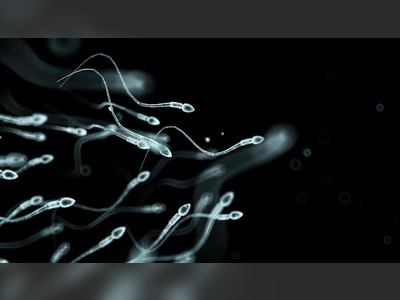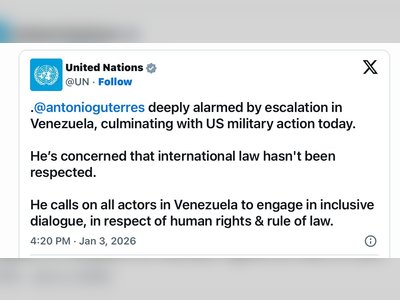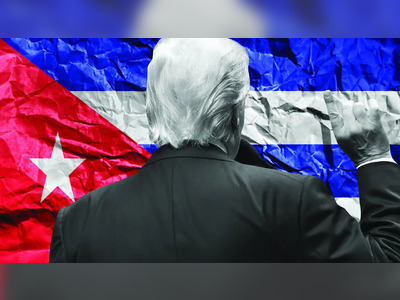
Ukraine's Mineral Wealth: A Strategic Gambit for Continued U.S. Support
Ukraine's President Volodymyr Zelensky seeks to leverage the country's rare earth mineral reserves to secure ongoing support from the U.S., amid complex negotiations with Washington.
Estimates suggest that the mineral resources located in eastern Ukraine, currently occupied by Russia, could be worth up to $12 trillion, exceeding Hungary's GDP by more than 56 times in 2023. President Volodymyr Zelensky is now attempting to utilize Ukraine's rich reserves of rare earth metals as leverage to ensure continued American support for Ukraine, particularly in the event of a return to the White House by Donald Trump.
While U.S. military shipments to Ukraine have not been halted, President Trump has made it clear that he expects reciprocal benefits in exchange for continued support.
In early February, he indicated interest in gaining access to Ukraine's rare earth reserves as a condition for ongoing American funding, suggesting that the Ukrainian government might be open to negotiations regarding these resources.
Zelensky had already indicated a willingness to provide access to Ukraine's mineral resources during the presidency of Democrat Joe Biden.
He presented Ukraine's "victory plan" last autumn, where he conveyed that they might sacrifice some mineral wealth to strengthen their negotiating position and bring Moscow to the table for discussions.
When discussing Ukraine's mineral wealth, Zelensky emphasized the value of these resources, stating that the figures could be in the trillions.
He recently presented a previously classified map indicating vast deposits of rare earth metals and other minerals to Trump.
Zelensky asserted that Ukraine is not offering its resources freely but proposes a partnership with the U.S., suggesting rights to extraction in exchange for military support and substantive security guarantees against future aggression from Russia.
Despite these overtures, recent statements from Trump and his Defense Secretary suggest that they might favor Russia over Ukraine in negotiations.
As of February 24, 2022, Russia had occupied nearly one-fifth of Ukraine, including Crimea seized in 2014 and territories claimed by Russian-supported separatists in Donetsk and Luhansk regions.
Zelensky observed that the Russian occupation has currently encompassed less than one-fifth of Ukraine's mineral wealth.
With regard to mineral resources, Ukraine is one of the largest exporters of wheat and corn globally, contributing about 8% and 10%, respectively.
Additionally, Ukraine has significant reserves of coal, natural gas, and various minerals.
According to Zelensky, Ukraine possesses Europe’s largest titanium reserves, essential for the aerospace and space industries, located mostly in its northwestern regions, distant from combat zones.
It is important to note that although significant coal reserves are present, roughly 80% are located within territories under Russian control.
Following the occupation, many steel production facilities have had to cease operations due to the attacks.
A substantial part of Ukraine's iron ore reserves now remains inaccessible due to the war, particularly in the occupied region of Zaporizhzhia.
Ukraine's natural gas reserves, meanwhile, have seen approximately 20% come under Russian control, along with 11% of its oil reserves.
Notably, one-third of Ukraine's rare earth metals, including lithium essential for battery production, are currently found in the occupied regions.
Ukraine has one of Europe's largest lithium reserves, albeit significantly smaller than those of Australia, Chile, China, and Argentina.
The U.S. has expressed intentions to reduce reliance on Chinese dominance in the production of rare earths, a goal supported by the Biden administration and even more vocally embraced by Trump.
Given this circumstance, Ukrainian leaders are optimistic that their lithium reserves may incentivize enduring U.S. interest in bolstering Ukraine’s defense capabilities.
The idea of leveraging mineral resources is not new.
The European Union has affirmed since 2020 that strengthening ties with Ukraine is crucial to diversifying the sources of strategic raw materials.
This commitment led to a joint cooperation agreement in 2021 regarding raw material markets.
Trump has recently highlighted the potential financial gains from Ukraine's resources.
In comments to Fox News, he stated, "I told them that I want rare earth metals equivalent to $500 billion in exchange.
They basically agreed to it, so at least we don't feel stupid."
Additionally, Trump announced plans to send Keith Kellogg, the U.S. special envoy for the Russia-Ukraine conflict, to Ukraine to develop proposals for ending the war.
Trump has been advocating for a rapid resolution, while Zelensky demands robust security guarantees from Washington as part of any agreements with Russia.
This discourse is expected to unfold further during the upcoming Munich Security Conference, where Zelensky is likely to engage with U.S. Vice President Kamala Harris.
It is critical to remain objective regarding the actual economic viability of extracting Ukraine's lithium reserves.
The previously declared reserves of 750,000 tons are theoretical; two of the four significant sites are currently under Russian oversight.
Even without the ongoing conflict, determining whether lithium extraction can be conducted economically remains a question.
For instance, in Germany, where lithium reserves are estimated at 3 million tons, there is no expectation of becoming a leading lithium producer due to a reliance on imported materials for battery production.
Currently, only Portugal has an operational lithium mine within the EU, while France, Czech Republic, and Austria have future mining endeavors planned.
Among non-EU nations, Serbia is recognized for its potential, supplying 17% of the EU’s lithium needs for electric vehicle batteries.
While Ukraine could also enter this competitive landscape, it remains uncertain if extraction can be performed economically.
Moreover, the world market currently does not face a shortage of lithium, with prices significantly lower than previous years.
The declining price of lithium hydroxide, used in battery production, has decreased from $85 per kilogram in 2022 to an estimated range of $15 to $25 in the coming years.
In light of these considerations, opening mines involves considerable capital investment and energy-intensive operations, further complicated by the impact of ongoing conflict on operational costs.
Furthermore, lithium is stored in petalite, which presents more costly extraction methods compared to spodumene, whose concentration allows for more economical production.
Currently, significant commercial production from petalite is not available, as noted by Jehor Perelihin, head of UMCC Titanium, which focuses primarily on titanium extraction in Ukraine.
While purely economic calculations could potentially be overridden by emerging political dynamics seeking to reduce dependence on foreign sources, the EU could still gain from incorporating new local sources, assuming they can be established—most likely with American participation.
While U.S. military shipments to Ukraine have not been halted, President Trump has made it clear that he expects reciprocal benefits in exchange for continued support.
In early February, he indicated interest in gaining access to Ukraine's rare earth reserves as a condition for ongoing American funding, suggesting that the Ukrainian government might be open to negotiations regarding these resources.
Zelensky had already indicated a willingness to provide access to Ukraine's mineral resources during the presidency of Democrat Joe Biden.
He presented Ukraine's "victory plan" last autumn, where he conveyed that they might sacrifice some mineral wealth to strengthen their negotiating position and bring Moscow to the table for discussions.
When discussing Ukraine's mineral wealth, Zelensky emphasized the value of these resources, stating that the figures could be in the trillions.
He recently presented a previously classified map indicating vast deposits of rare earth metals and other minerals to Trump.
Zelensky asserted that Ukraine is not offering its resources freely but proposes a partnership with the U.S., suggesting rights to extraction in exchange for military support and substantive security guarantees against future aggression from Russia.
Despite these overtures, recent statements from Trump and his Defense Secretary suggest that they might favor Russia over Ukraine in negotiations.
As of February 24, 2022, Russia had occupied nearly one-fifth of Ukraine, including Crimea seized in 2014 and territories claimed by Russian-supported separatists in Donetsk and Luhansk regions.
Zelensky observed that the Russian occupation has currently encompassed less than one-fifth of Ukraine's mineral wealth.
With regard to mineral resources, Ukraine is one of the largest exporters of wheat and corn globally, contributing about 8% and 10%, respectively.
Additionally, Ukraine has significant reserves of coal, natural gas, and various minerals.
According to Zelensky, Ukraine possesses Europe’s largest titanium reserves, essential for the aerospace and space industries, located mostly in its northwestern regions, distant from combat zones.
It is important to note that although significant coal reserves are present, roughly 80% are located within territories under Russian control.
Following the occupation, many steel production facilities have had to cease operations due to the attacks.
A substantial part of Ukraine's iron ore reserves now remains inaccessible due to the war, particularly in the occupied region of Zaporizhzhia.
Ukraine's natural gas reserves, meanwhile, have seen approximately 20% come under Russian control, along with 11% of its oil reserves.
Notably, one-third of Ukraine's rare earth metals, including lithium essential for battery production, are currently found in the occupied regions.
Ukraine has one of Europe's largest lithium reserves, albeit significantly smaller than those of Australia, Chile, China, and Argentina.
The U.S. has expressed intentions to reduce reliance on Chinese dominance in the production of rare earths, a goal supported by the Biden administration and even more vocally embraced by Trump.
Given this circumstance, Ukrainian leaders are optimistic that their lithium reserves may incentivize enduring U.S. interest in bolstering Ukraine’s defense capabilities.
The idea of leveraging mineral resources is not new.
The European Union has affirmed since 2020 that strengthening ties with Ukraine is crucial to diversifying the sources of strategic raw materials.
This commitment led to a joint cooperation agreement in 2021 regarding raw material markets.
Trump has recently highlighted the potential financial gains from Ukraine's resources.
In comments to Fox News, he stated, "I told them that I want rare earth metals equivalent to $500 billion in exchange.
They basically agreed to it, so at least we don't feel stupid."
Additionally, Trump announced plans to send Keith Kellogg, the U.S. special envoy for the Russia-Ukraine conflict, to Ukraine to develop proposals for ending the war.
Trump has been advocating for a rapid resolution, while Zelensky demands robust security guarantees from Washington as part of any agreements with Russia.
This discourse is expected to unfold further during the upcoming Munich Security Conference, where Zelensky is likely to engage with U.S. Vice President Kamala Harris.
It is critical to remain objective regarding the actual economic viability of extracting Ukraine's lithium reserves.
The previously declared reserves of 750,000 tons are theoretical; two of the four significant sites are currently under Russian oversight.
Even without the ongoing conflict, determining whether lithium extraction can be conducted economically remains a question.
For instance, in Germany, where lithium reserves are estimated at 3 million tons, there is no expectation of becoming a leading lithium producer due to a reliance on imported materials for battery production.
Currently, only Portugal has an operational lithium mine within the EU, while France, Czech Republic, and Austria have future mining endeavors planned.
Among non-EU nations, Serbia is recognized for its potential, supplying 17% of the EU’s lithium needs for electric vehicle batteries.
While Ukraine could also enter this competitive landscape, it remains uncertain if extraction can be performed economically.
Moreover, the world market currently does not face a shortage of lithium, with prices significantly lower than previous years.
The declining price of lithium hydroxide, used in battery production, has decreased from $85 per kilogram in 2022 to an estimated range of $15 to $25 in the coming years.
In light of these considerations, opening mines involves considerable capital investment and energy-intensive operations, further complicated by the impact of ongoing conflict on operational costs.
Furthermore, lithium is stored in petalite, which presents more costly extraction methods compared to spodumene, whose concentration allows for more economical production.
Currently, significant commercial production from petalite is not available, as noted by Jehor Perelihin, head of UMCC Titanium, which focuses primarily on titanium extraction in Ukraine.
While purely economic calculations could potentially be overridden by emerging political dynamics seeking to reduce dependence on foreign sources, the EU could still gain from incorporating new local sources, assuming they can be established—most likely with American participation.
AI Disclaimer: An advanced artificial intelligence (AI) system generated the content of this page on its own. This innovative technology conducts extensive research from a variety of reliable sources, performs rigorous fact-checking and verification, cleans up and balances biased or manipulated content, and presents a minimal factual summary that is just enough yet essential for you to function as an informed and educated citizen. Please keep in mind, however, that this system is an evolving technology, and as a result, the article may contain accidental inaccuracies or errors. We urge you to help us improve our site by reporting any inaccuracies you find using the "Contact Us" link at the bottom of this page. Your helpful feedback helps us improve our system and deliver more precise content. When you find an article of interest here, please look for the full and extensive coverage of this topic in traditional news sources, as they are written by professional journalists that we try to support, not replace. We appreciate your understanding and assistance.











